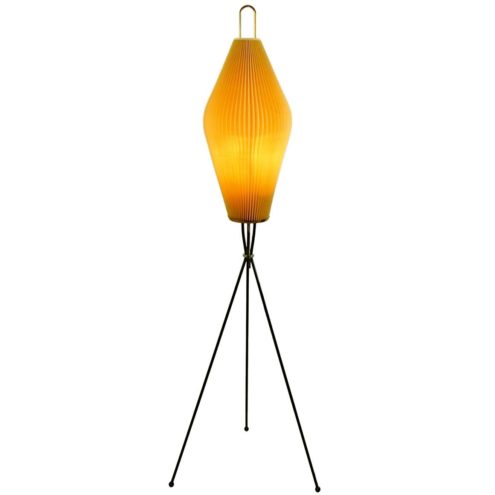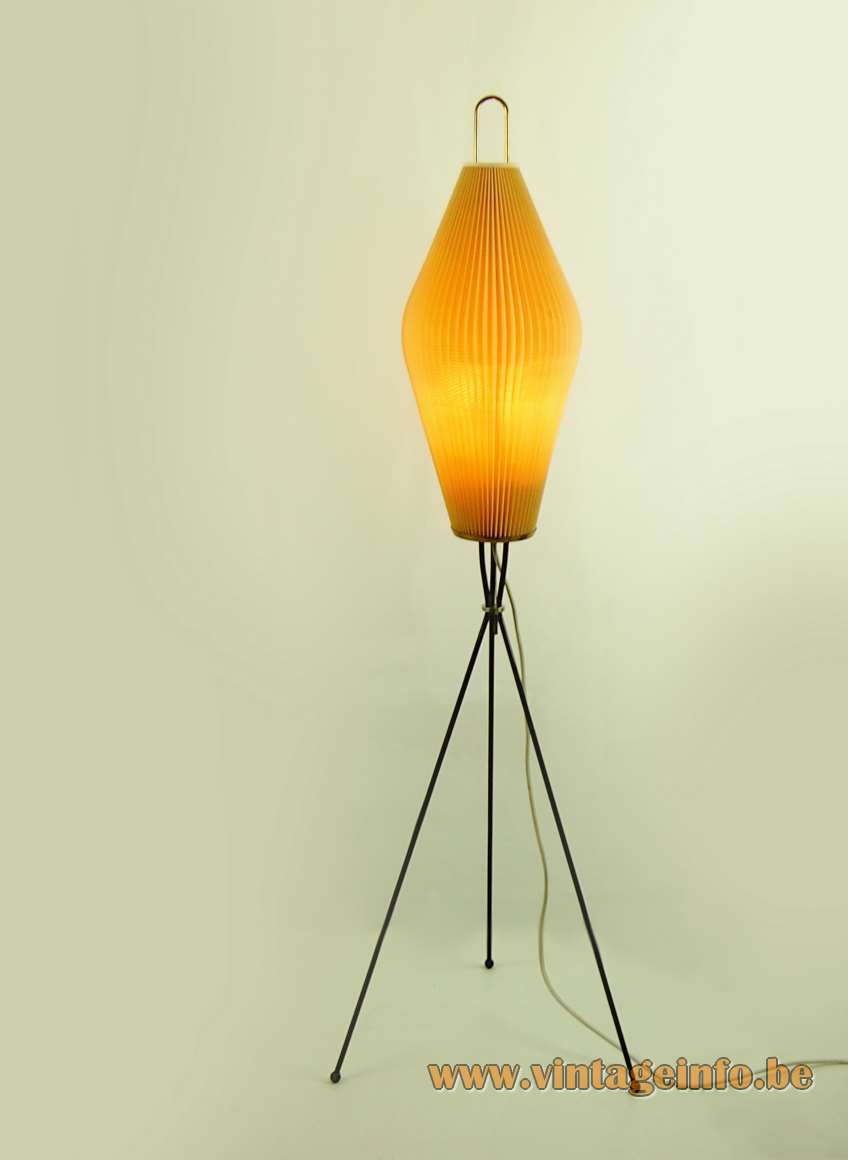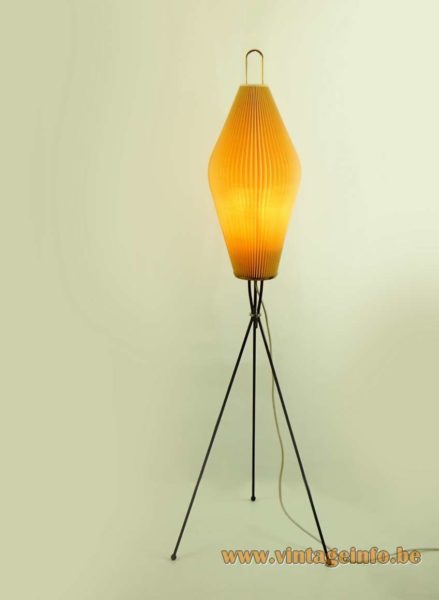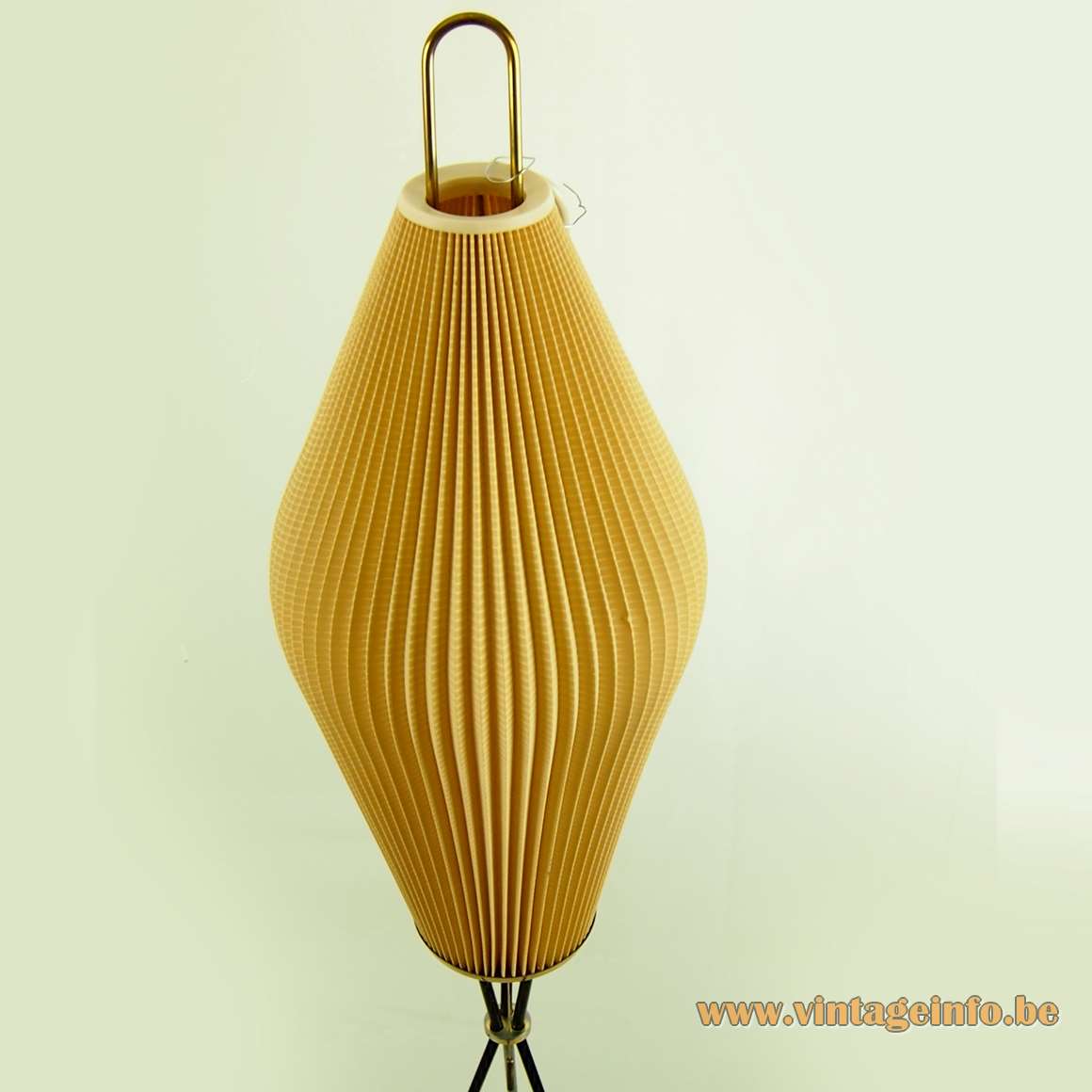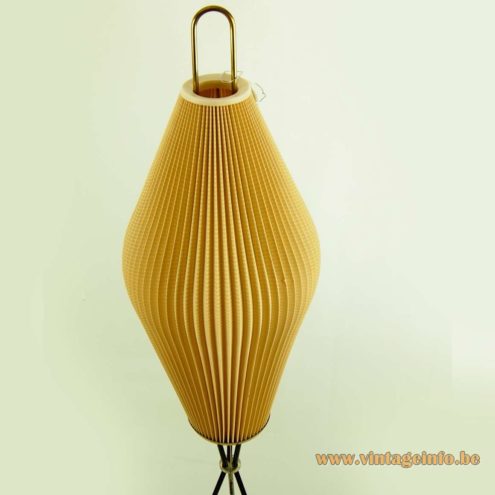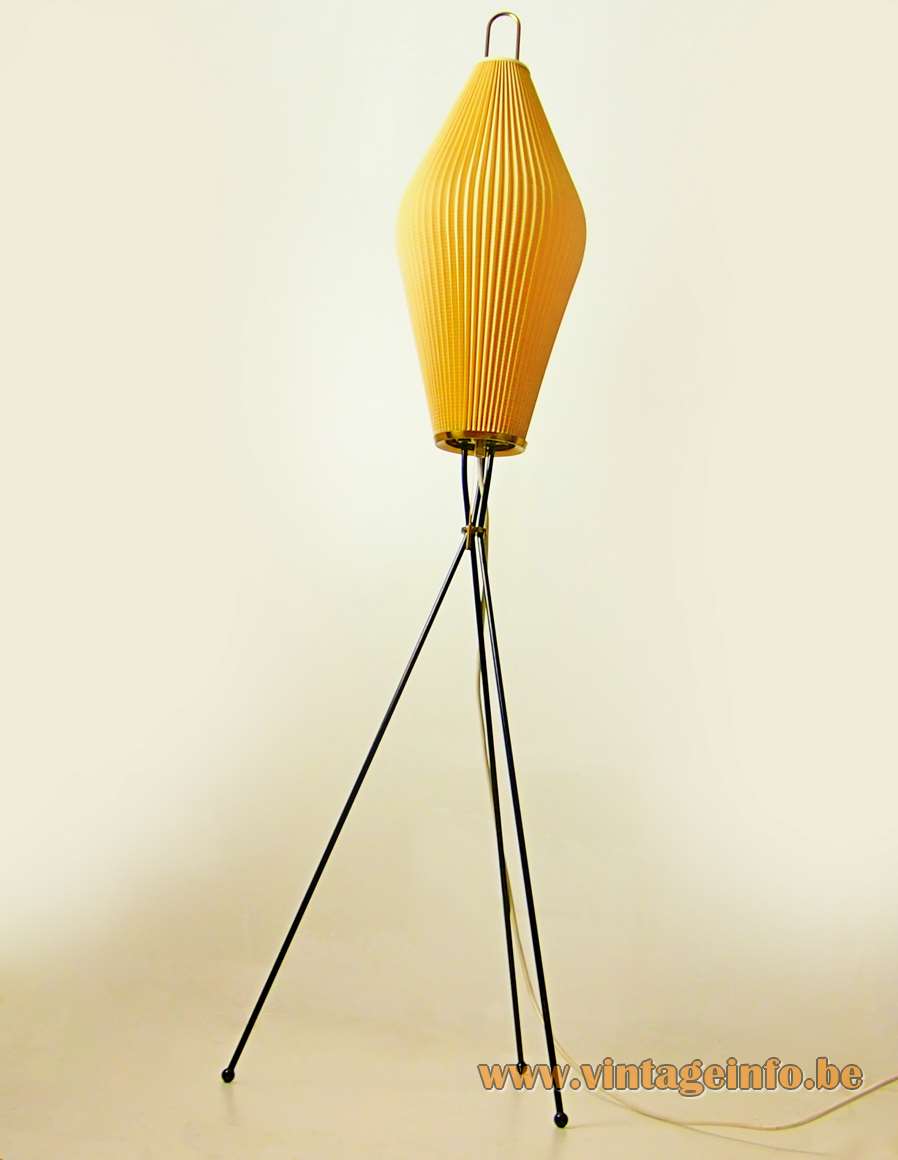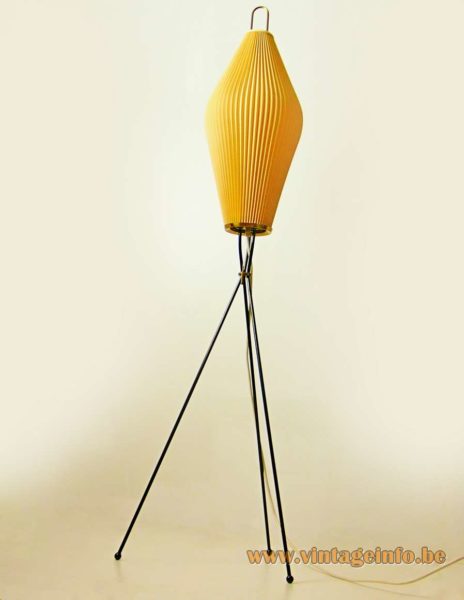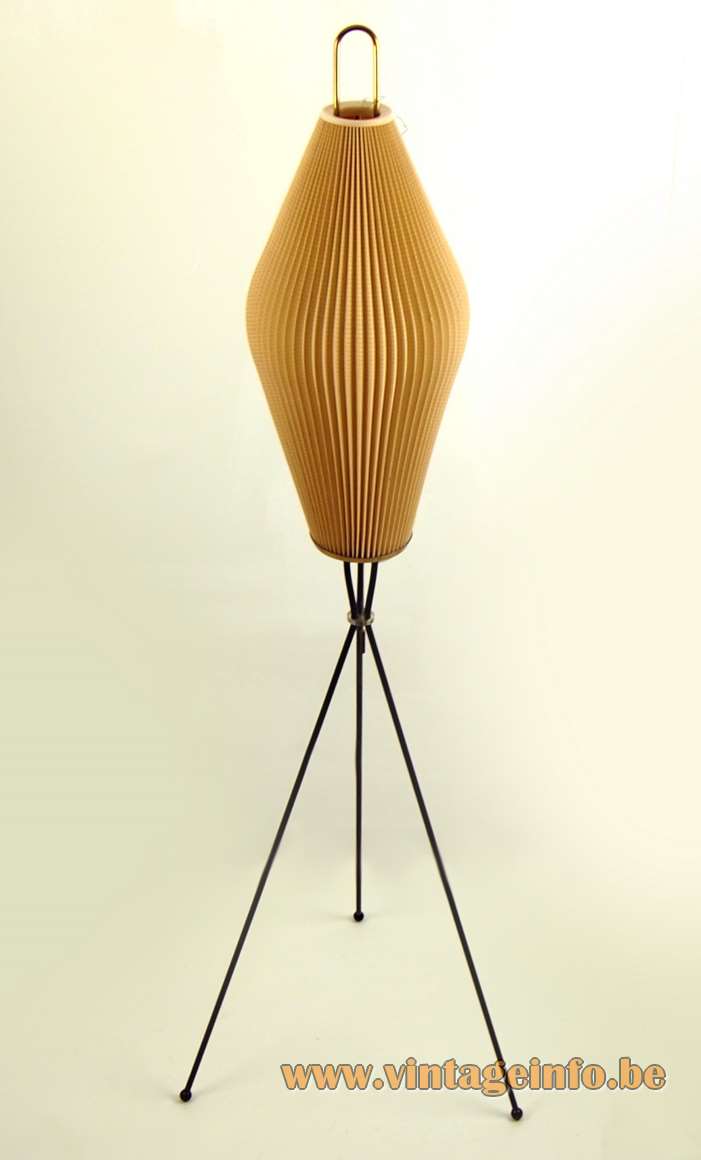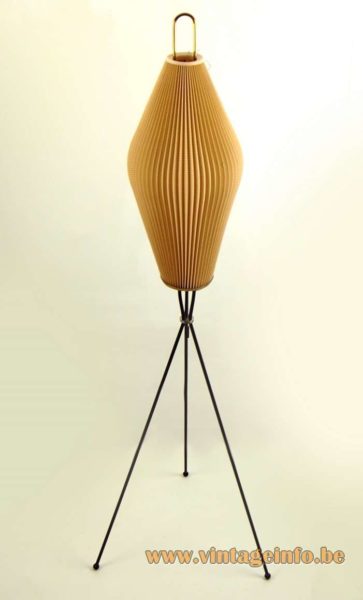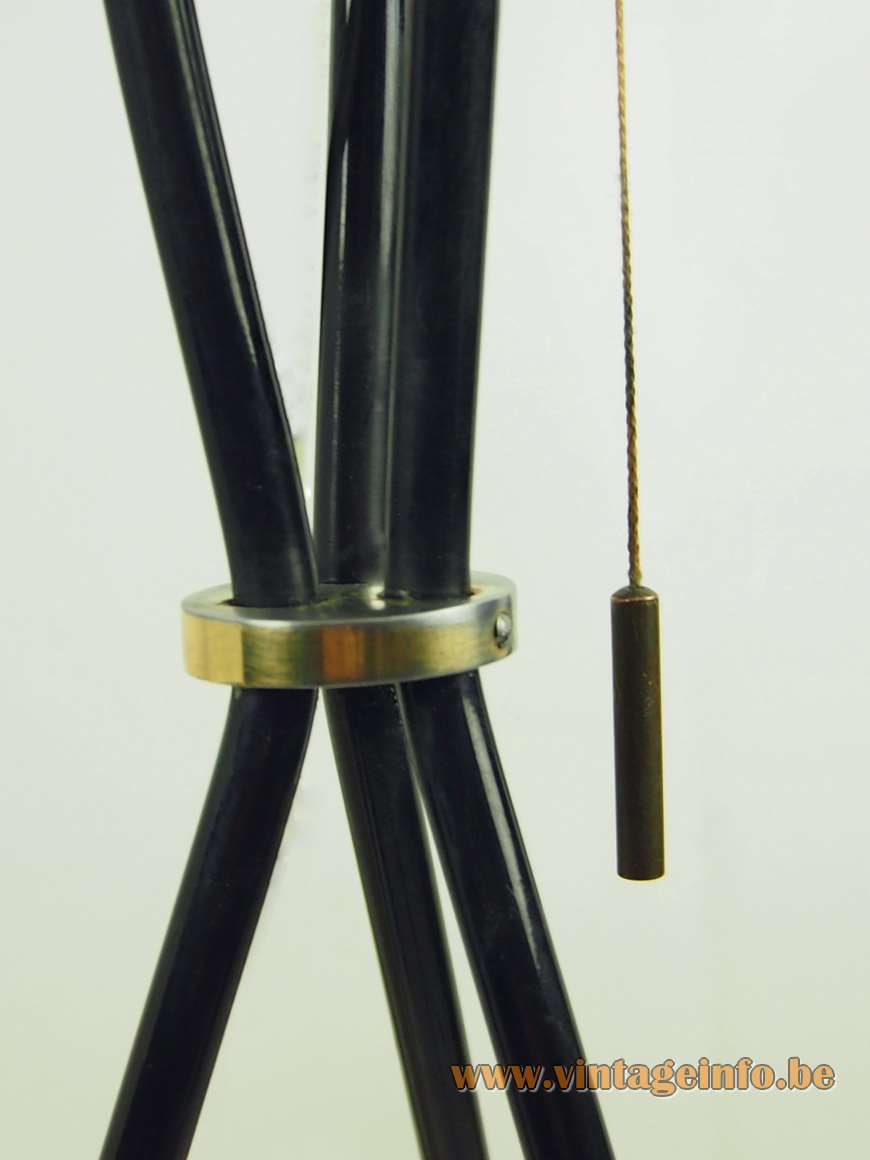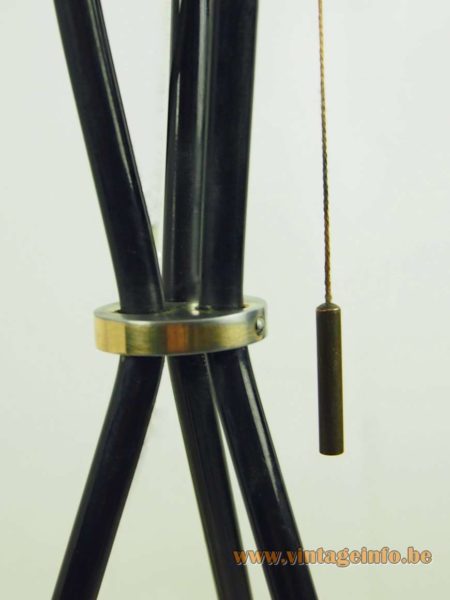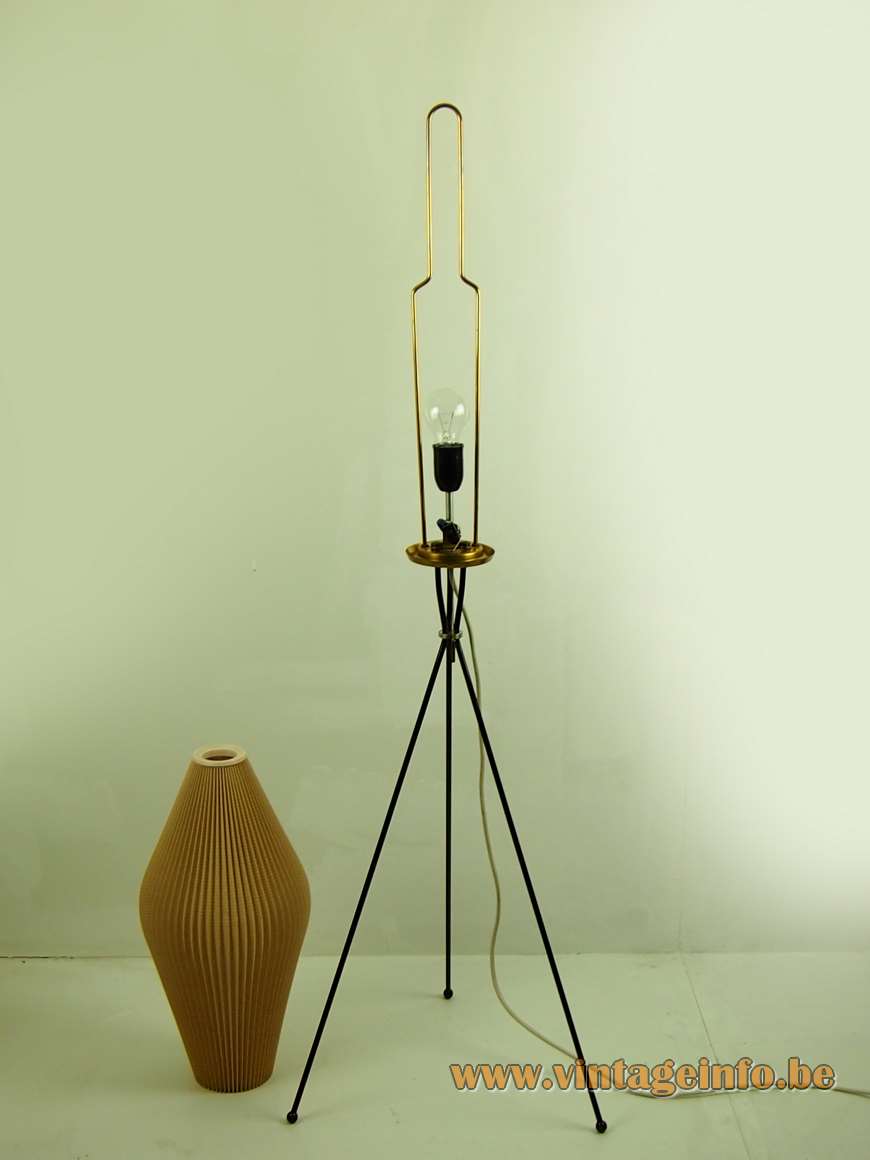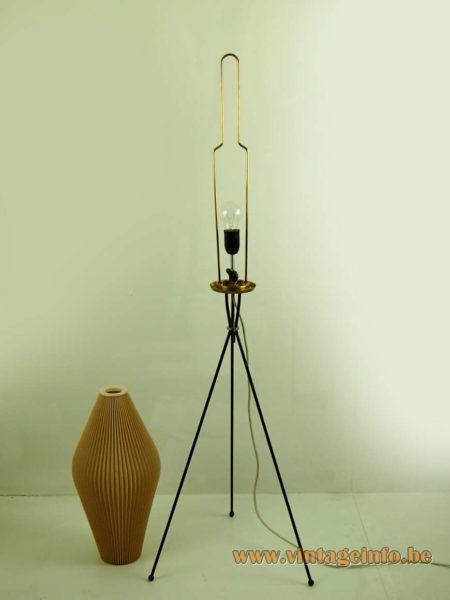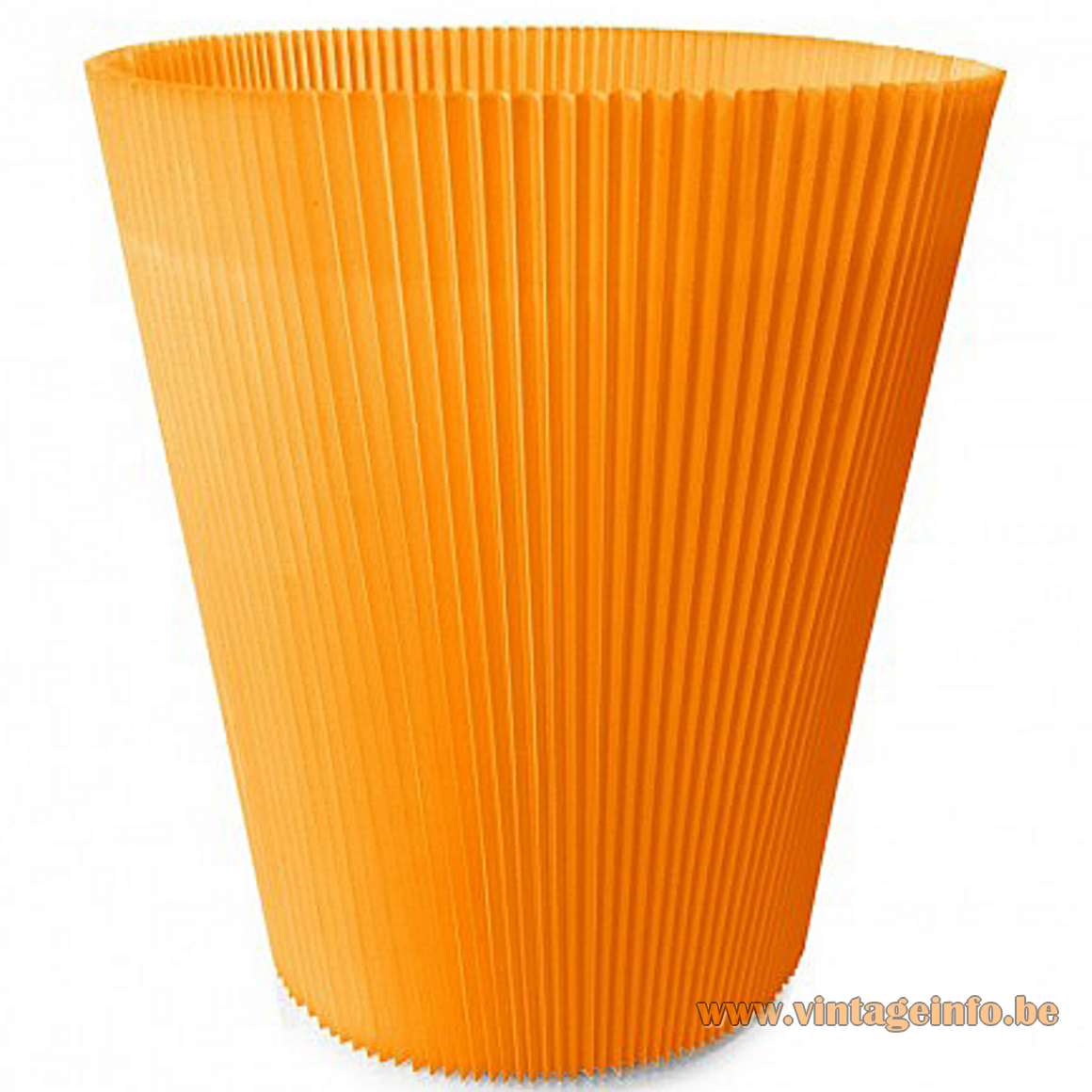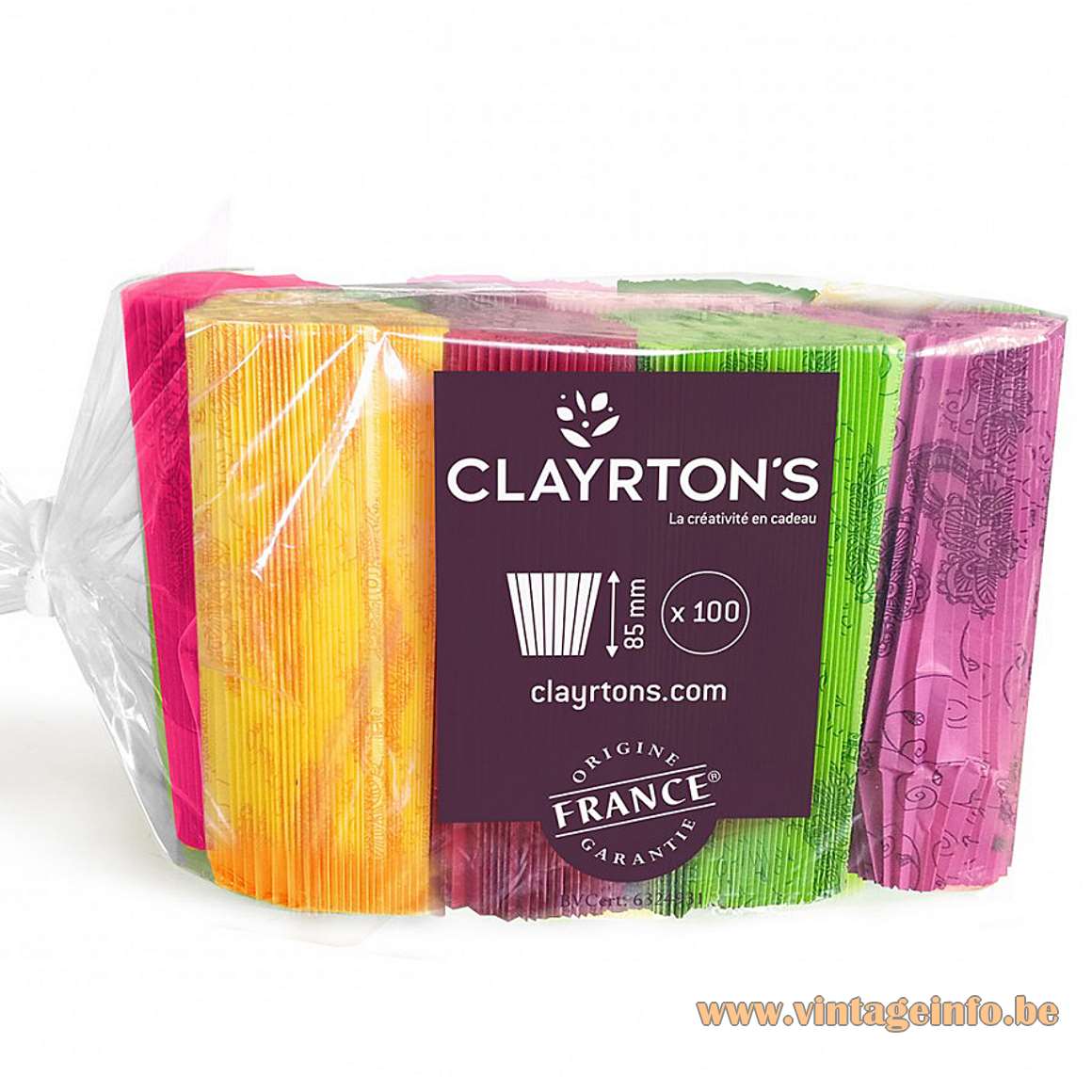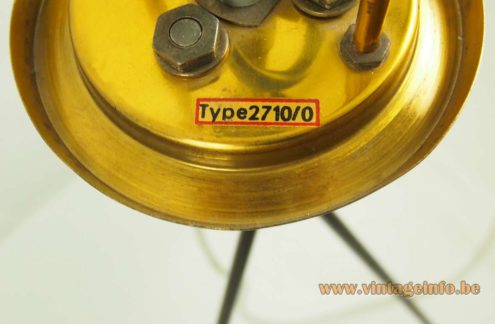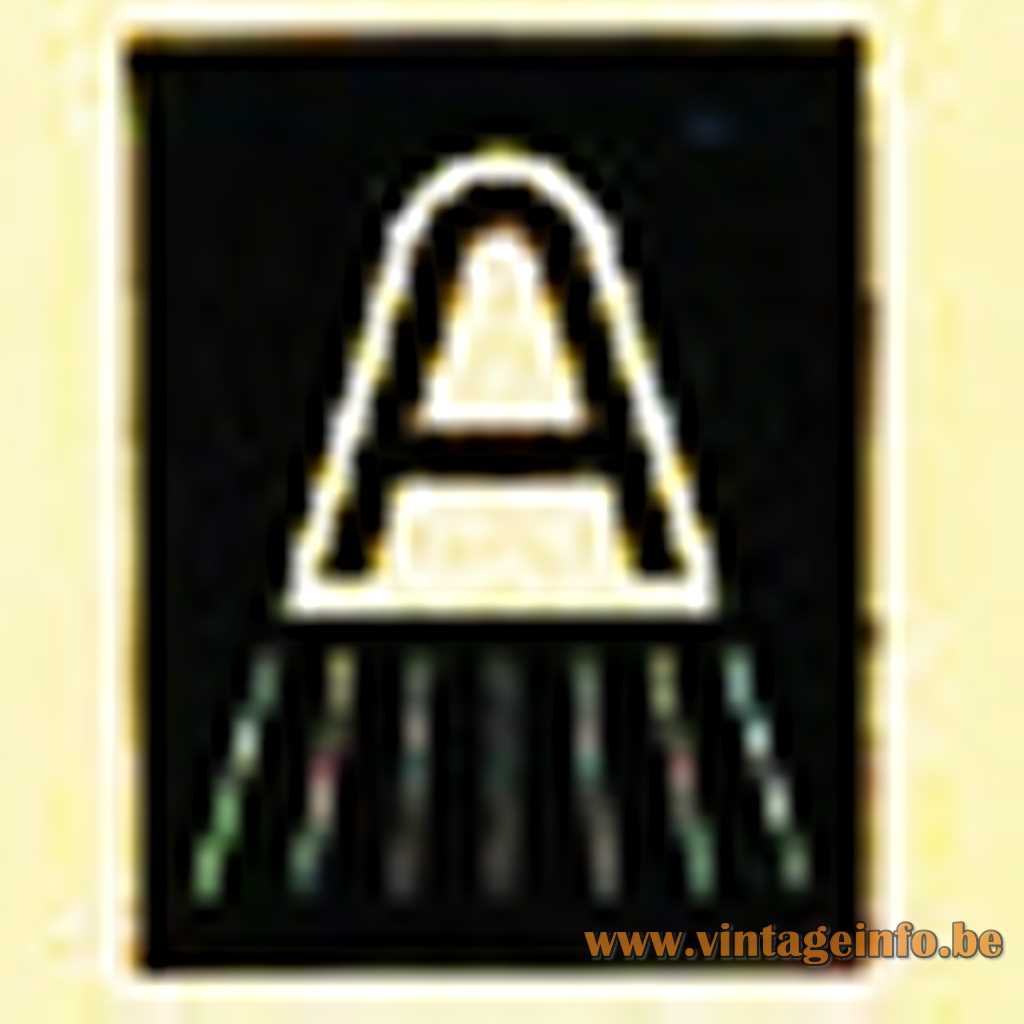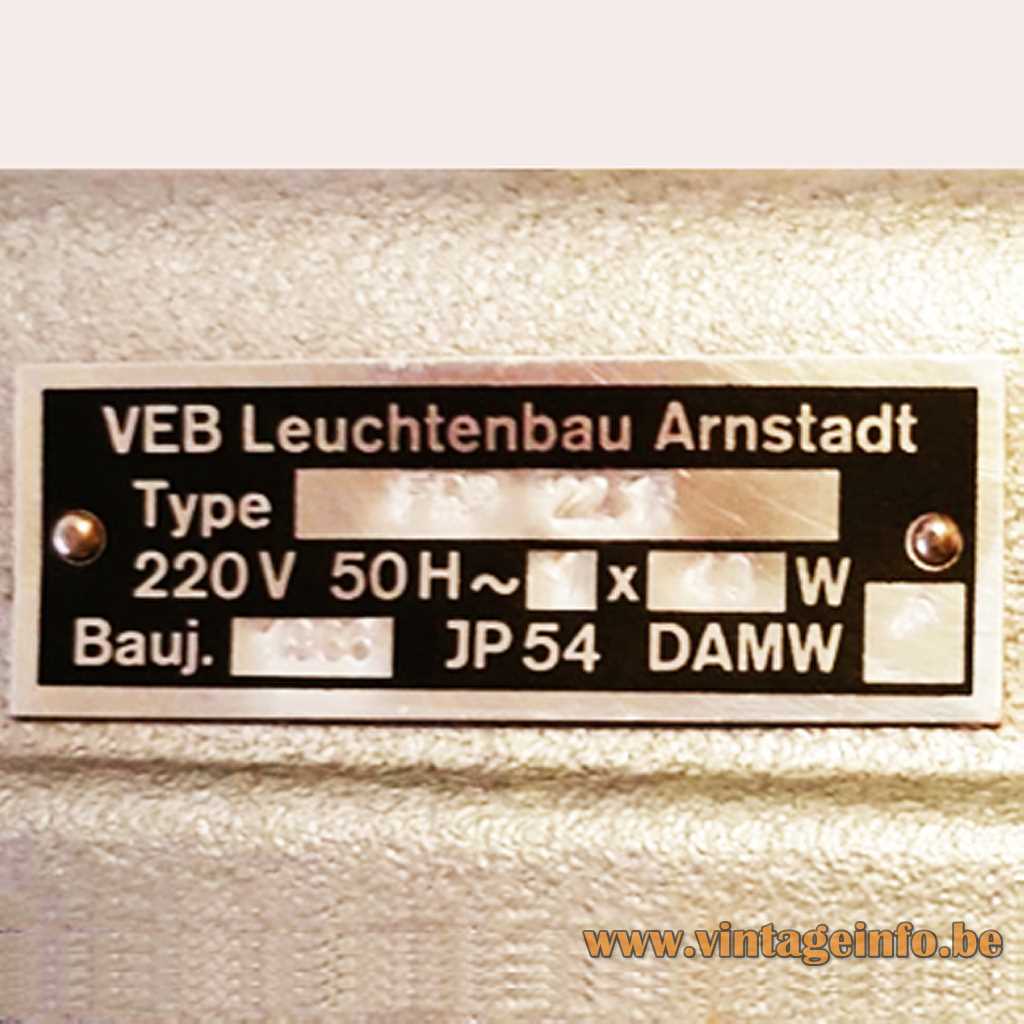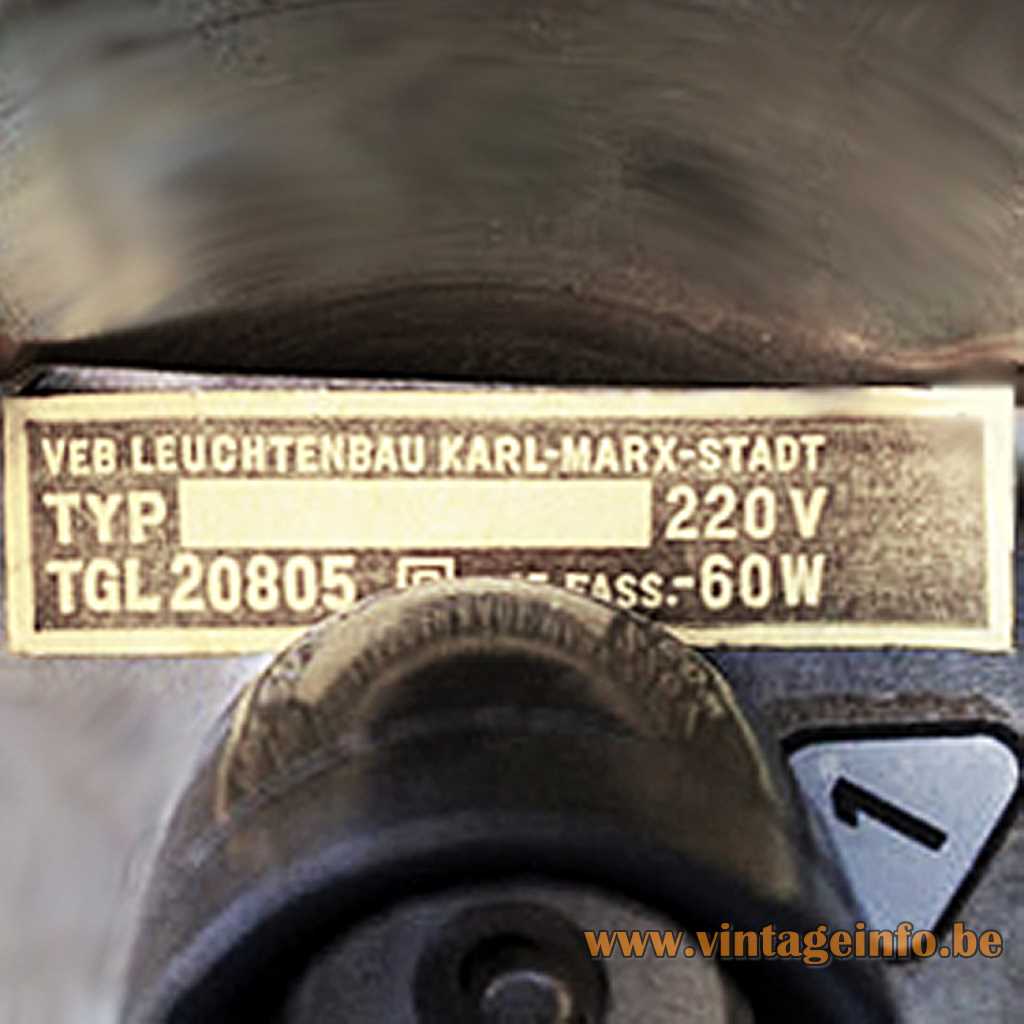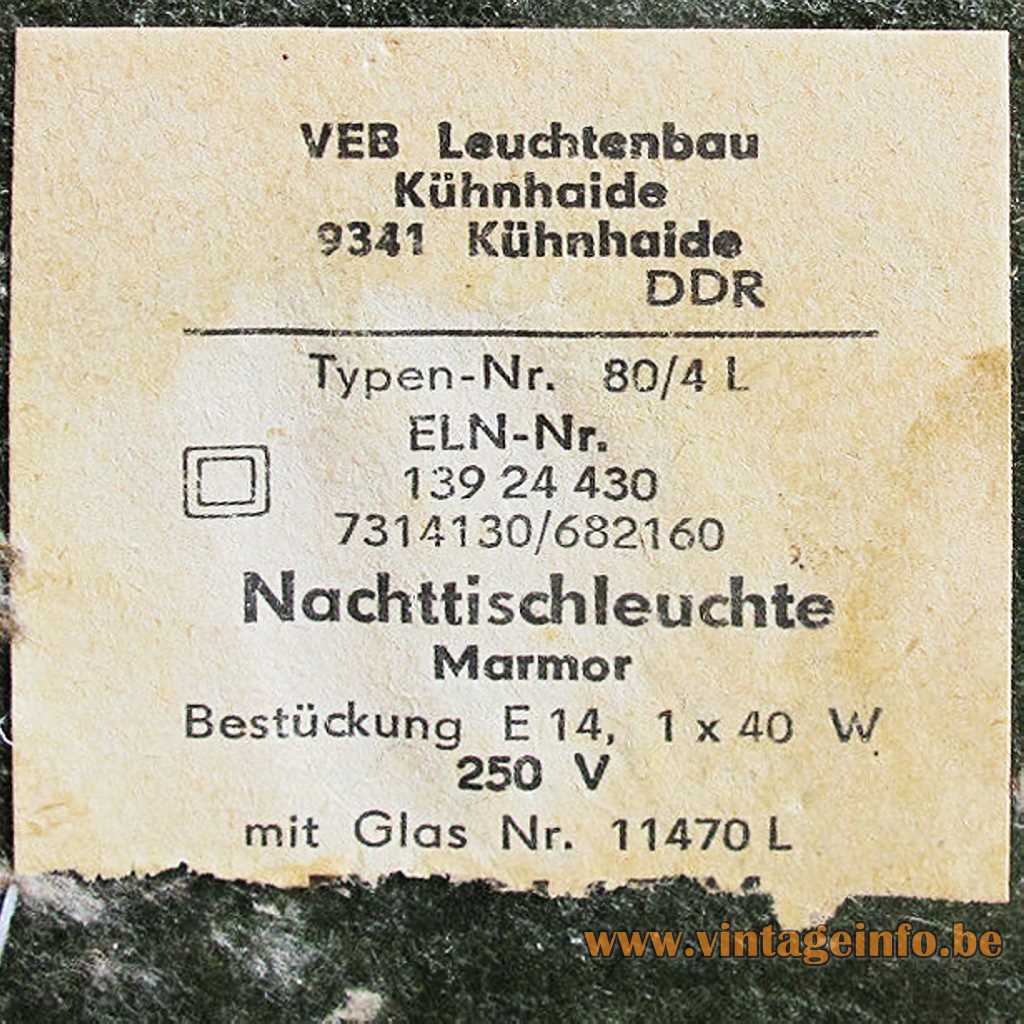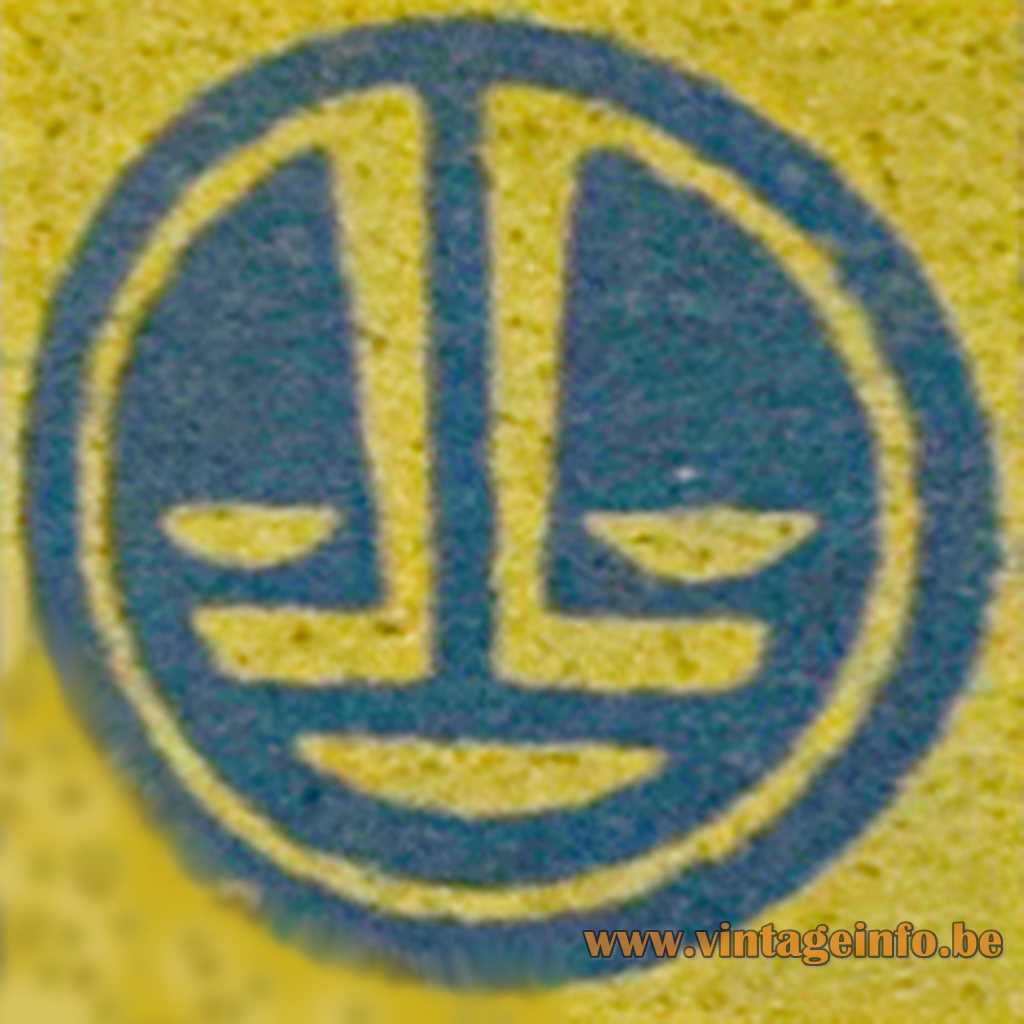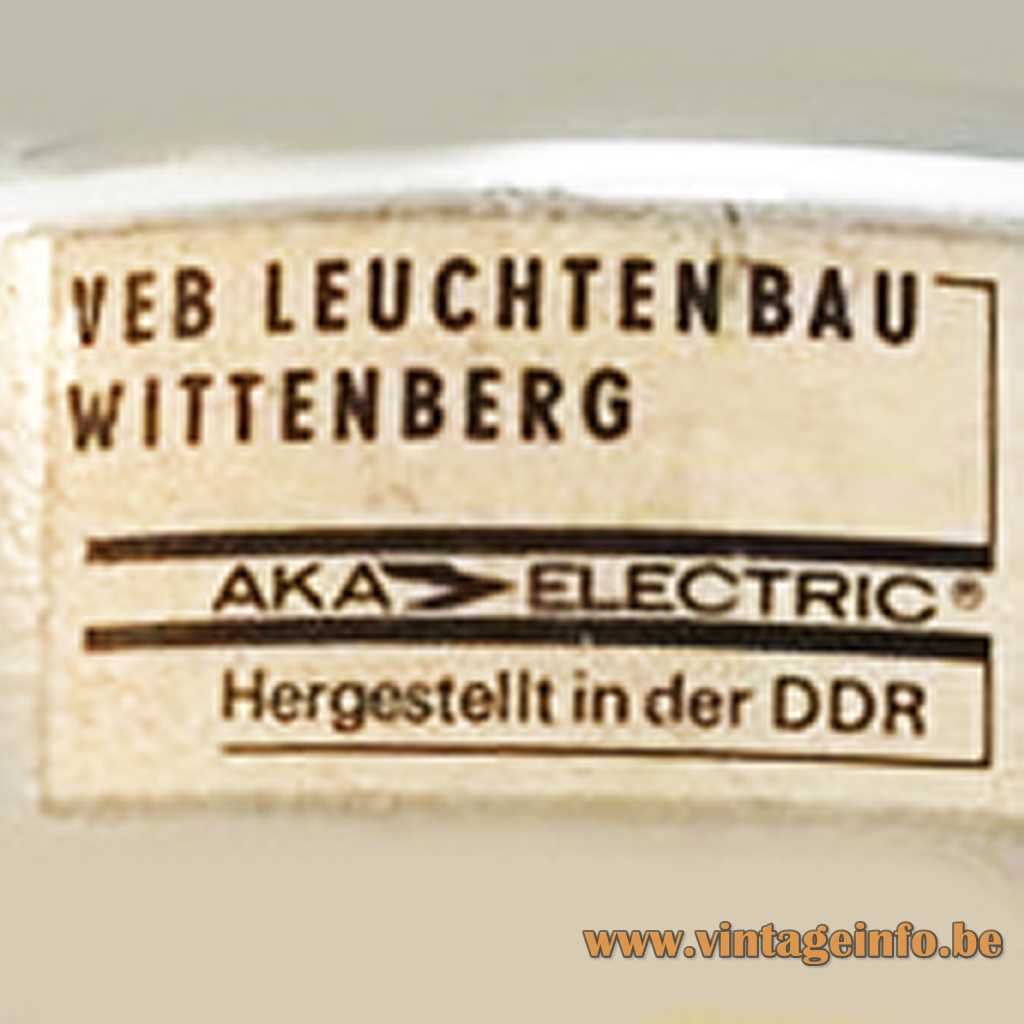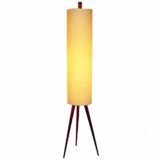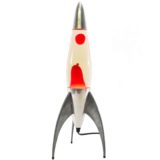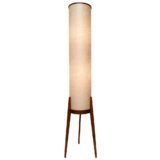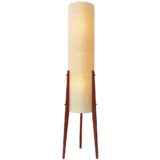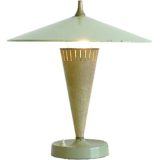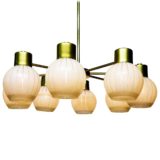Celluloid Tripod Floor Lamp
Materials: 3 black painted metal (iron) rods base. Some brass parts. Yellow cellulose acetate (Rhodoïd) diamond shaped round lampshade. Pull cord switch. Bakelite E27 socket.
Height: 106 cm / 48.03”
Lampshade: ∅ 24 x 60 cm / 11.22”
Electricity: 1 bulb E27, 1 x 60 watt maximum, 110/220 volt.
Any type of light bulb can be used, not a specific one preferred.
Period: 1950s, 1960s – Mid-Century Modern.
Designer: To be appraised.
Manufacturer: An East German company, one of the many VEB Leuchtenbau firms.
Other versions: This celluloid tripod floor lamp was probably made in several colours. This lamp is Type 2710/0.
In 1972, due to the nationalization, almost all GDR lighting manufacturers were combined as VEB Narva.
The lampshade is made of iron wire, paper and celluloid wrapped around it. Exactly the same material as the stretchable folded celluloid flower pot decoration that is for sale since the 1930s and it is still available today. The “manchette” or “cuff” plastic is stretchable thanks to the folds, and therefore fits perfectly.
Lamps with these type of lampshades are often attributed to the famous French designer Georges Léon Rispal. Rispal is famous for his original creations and biomorphic forms. For some lampshades he used similar materials. But it was Lars Eiler Schiøler who was the first to use it for his Pearlshade lamps produced by the Danish Hoyrup.
Celluloid
Celluloid is cellulose nitrate. This lamp is made of cellulose acetate. The names are often mixed.
Cellulose acetate
Cellulose acetate is an early plastic, sold under the trade names Rhodoid in France and Great Britain, Tenite in the USA and Cellon in Germany. It was first prepared in 1865. Cellulose acetate is used as a film base in photography, for eyeglasses, cigarette filters and playing cards. Acrylic (1930s) and PVC (1920s) were discovered before World War II, but was only widely used since the late 1950s.
This tripod floor lamp was acquired in Germany, in all probability it is a German lamp. Several East German companies used labels with red and yellow, such as this one.
Links (external links open in a new window)
Manchettes flower pot – Google images
Clayrton’s – a producer of flower pot covers
Other lamps in the folded/pleated cuff style on Vintageinfo
Italian 1950s ‘Rhodoïd’ floor lamp
Many thanks to Ger for the beautiful pictures.
